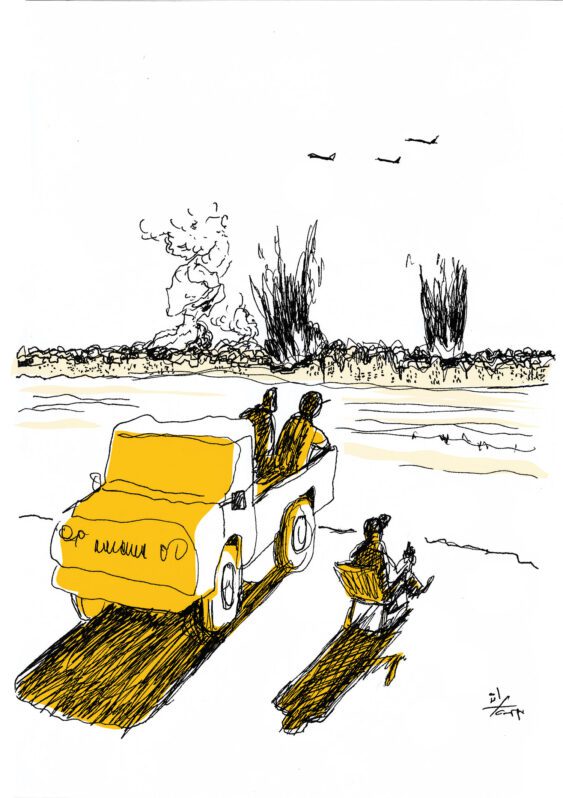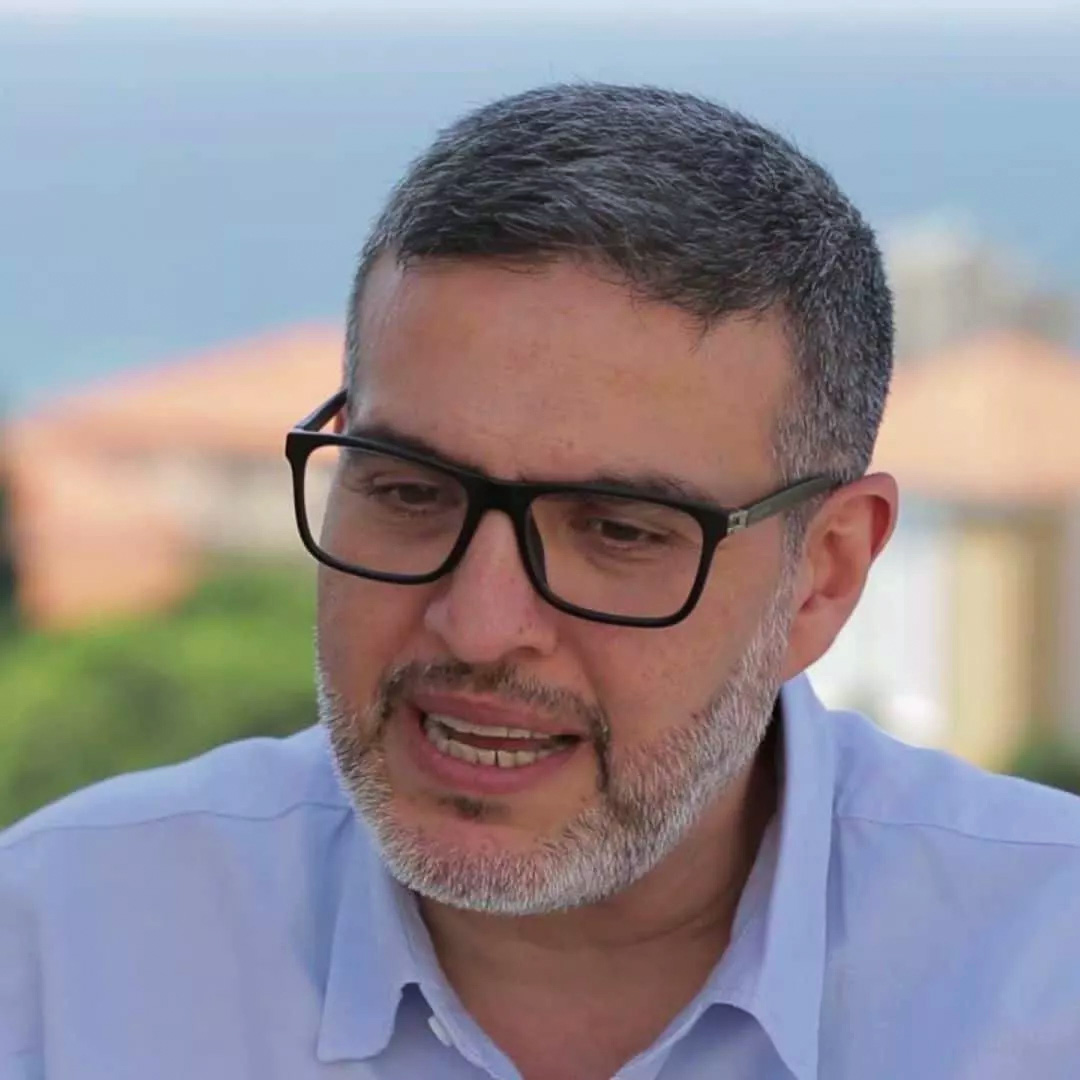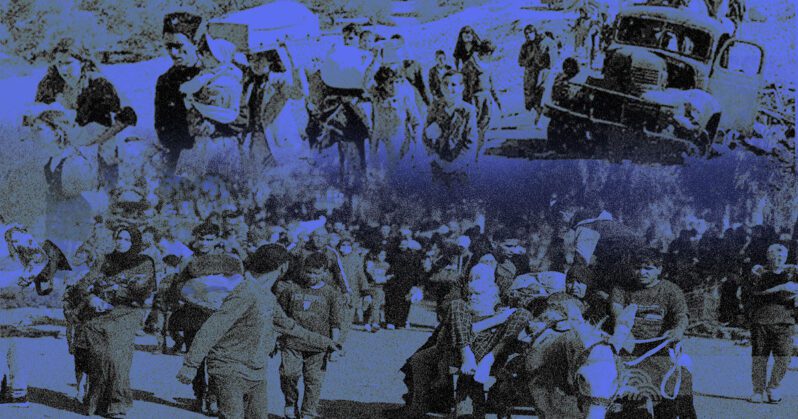The Counter-Genocide

The genocide underway in Gaza since October 7 is not the first to occur since the Second World War, but it may be the only genocide to be perpetrated overtly and broadcast live to the world. Of course, this genocide could not have occurred or continued, given the advancement in the laws of war and communications and media technology, without the exceptional efforts by Israel and the countries supporting Israel to facilitate it, justify it, and counter the pressures aimed at stopping it. In fact, in parallel with the destruction and killing in Gaza, Israel and its supporters have waged multiple complex wars worldwide against, among other things, the foundations of the system established in response to the Nazi genocides – a system based on the humanization of international “humanitarian” law and the Universal Declaration of Human Rights (UDHR). Evidentially, this genocide cannot be facilitated without destroying everything we learned from previous genocides – that is why I have titled this article “The Counter-Genocide”.
Although these wars seem secondary to the genocide itself, they have significant implications. Besides complementing the genocide and occasionally constituting an integral part of it, they could have profound effects far beyond the spatial and temporal bounds of the conflict and pave the way for many more wars and genocides in the future.
While the details of this genocidal war will attract decades of documentation efforts, its direct effects on the global level must also be understood. The Legal Agenda will address these effects in a collection of articles, some of which will be published on its website. In this article, I will merely make introductory observations about the most important questions arising today – questions that are expected to take center stage once the violence subsides.
A War Against the Humanization of International Law: Is the “Human” Still the Paramount Value?
Many civilizations around the world have developed various mechanisms to humanize conflicts. These efforts peaked with the Geneva Agreements and the Genocide Convention in the wake of the Second World War. Perhaps the best example of this may be the emergence of the concept of a crime against humanity (which was initially used marginally to condemn slavery during the 19th century). This concept implies that some crimes, because of their nature, motives, and what they infringe on, pose a danger not only to the group directly targeted but to all people. This is the case, for example, when murder, displacement, enforced disappearance, or systematic torture based on religion, sect, race, or any innate characteristic or characteristic stemming from the exercise of legitimate freedoms is rendered permissible. In other words, permitting these things harms a human because of their identity as a human. If such a crime is normalized, other humans could be exposed to it.
This concept essentially aims to underscore not only the gravity of the crime but also – and in particular – that its harm extends to all humankind. Every human is its victim and therefore has the standing, or even the moral duty, to condemn it and engage in efforts to stop it and effect accountability for it. This notion is fully embodied in several international instruments. These include the Genocide Convention, which charges all states with the responsibility to take the necessary measures to avert a genocide, and the agreement that established the International Criminal Court (ICC), which is vested with the jurisdiction to examine crimes against humanity, as well as war crimes. It is also reflected by the expansion of the jurisdiction of several countries’ domestic courts to encompass this type of crime.
While this crime generally involves dehumanizing a certain group of people and thereby rendering them fair game (just as Israeli officials’ statements about Gazans have done), the aim of labeling it as what it is – a crime against humanity – is to evoke solidarity among all peoples for the purpose of organizing efforts to confront it, preserving humanity denied through it, and restoring the world order it gravely impinged upon.
From this angle, the war on Gaza has posed a major challenge, not just to international law and the international system in terms of its ability to confront crime but also to the concept of “crime against humanity” in and of itself. Is this concept underpinned by a real human sense of the gravity and reach of this crime, or is it merely a technical conception, no more than another legal innovation upon which international law was constructed? In other words, does this crime generate a global mobilization against it, or is it destined to remain confined to court frameworks, if its prosecution were able to overcome the gaps and deficiencies that still undermine the force of international law? Adding to this challenge are two factors that distinguish the war on Gaza from many other crimes against humanity that have occurred in recent decades. Firstly, Israel’s motives for committing the crime are clear: it does not conceal its deep-seated tendency toward dehumanizing Gazans. Secondly, Israel is clearly targeting civilians and the necessities of life in Gaza as part of a project that involves ethnic cleansing (evicting Gaza’s population to the Sinai Desert or from the north to the south) at the very least and, increasingly obviously, genocide.
Because of this twofold clarity, the question of how to handle this crime has become unavoidable, not just for countries but also for every one of us as individuals. Global movements (which have taken innovative, perhaps unprecedented forms), along with rights-based and academic initiatives that have unequivocally pointed out that we are facing a textbook case of genocide, have created hope in this regard. However, the failure of the Security Council, the major countries that support Israel, and – in particular – the ICC to make a firm decision to stop the genocide constitutes a breakdown and erosion of this concept. Making matters worse, the United States has repeatedly brandished its veto in the Security Council against ceasing the hostilities, thereby obstructing the world’s ability to stop the genocide. Moreover, the countries supporting Israel have applied domestic pressure to suppress movements and stances calling for the genocide to be stopped, thereby interfering with, and even criminalizing, natural reactions to it, along with the humanization of international law. Consequently, people who have a human sense that the crime concerns them can only express it if they are willing to risk many gains. If these movements subside, the human dimension of the crime disappears, at least in the international public consciousness.
From this angle, the efforts by Israel and the countries supporting it to dehumanize Palestinians appear to have been coupled with equally dangerous efforts to deprive international law of its human depth. Dehumanizing Palestinians has become a prelude to dehumanizing the law governing conflicts and, in practice, denying the status of the human as a paramount value encroachment on which constitutes the gravest of crimes.
The danger lies not only in the fact that the genocide itself is being ignored or sympathy with its victims is being curbed (by force when necessary) but also in the erosion of the concept of a crime against humanity that concerns all humankind. Instead of the world rising to defend itself against this crime, major world powers have continued parroting that Israel is exercising the right of self-defense.
The trend toward dehumanizing the law is corroborated by the fact that the genocide has been obscured by a technical debate over how the acts committed by Israel should be characterized and the authority competent to deliver that characterization. Some researchers have disputed that a genocide is occurring on the basis that the threshold has not yet been passed. They have overlooked the fact that there is a need for action irrespective of whether genocide has occurred, is occurring, or will likely occur, given that Israel has declared its intentions to commit it. Apparently, all Gazans must be eradicated before we can discern that we are facing a genocide! What makes this stance even more reprehensible is that irrespective of the technical debate about the definition of genocide (the destruction of a people) and whether it has been met, it is well established that the Israeli machine is at least working to achieve ethnic cleansing and destroy the necessities of life in Gaza, especially in the northern section.
Hence, we are facing a crime of ethnic cleansing that is at the very least a crime against humanity, i.e. another crime that calls for global action. In the same vein, many political officials (including High Representative of the European Union for Foreign Affairs and Security Policy Josep Borrell) have refused to condemn Israel for committing war crimes or crimes against humanity on the pretext that such a condemnation requires a trial and a close examination of the Israeli army’s motives for conducting a particular hostile action. This stance seems, in light of ICC Prosecutor Karim Ahmad Khan’s abstinence from any action, akin to support for Israeli impunity and a clear abdication of the responsibility to prevent the crime and defend the “human”.
A War on Fundamental Rights and Democracy
The second fissure that the war on Gaza has caused consists in the broad attack on fundamental rights that were enshrined in the UDHR in response once again to the horrors of the Second World War, in the hope that all states would engage in building a world that guarantees every person enjoys these rights and human dignity free of fear and want. Last year, the world was supposed to celebrate the diamond jubilee of this declaration, but the celebration was subdued because the anniversary came stained with the blood of thousands of Gazan children.
The most notable attack on these rights is the clampdown on freedom of expression, including the freedom to access information, acquire knowledge, protest, and enjoy academic independence. This occurred in various fields related in one way or another to condemning Israel’s war. The gravity of the attack on these freedoms, which has occurred in particular in the United States, Britain, France, Germany, and Austria, is exacerbated by two factors.
Firstly, this attack on a fundamental freedom is also an attack on the intended function of this freedom.In this case, either by exposing the truth or expressing solidarity with a people suffering from occupation, colonialism, racial segregation, and ethnic cleansing for 75 years and facing genocide today. In other words, the attack concerns the area where the freedom is supposed to enjoy the broadest latitude possible because it is exercised there for noble purposes, namely the defense of a sublime human interest.
Secondly, the attack relied on completely absurd arguments that withstand no serious debate. The best example is that enmity toward Israel or Zionism has been continuously and systematically conflated with antisemitism. Declaring solidarity with the Palestinian people, raising the Palestinian flag, wearing the keffiyeh, using the phrase “intifada” or “from the river to the sea Palestine will be free”, and calling for a boycott of Israeli products or even products from the West Bank settlements have been deemed antisemitic or encouragement of terrorism.
Evidentially, the noblest forms of exercising freedom of expression have been attacked using flimsy, patently absurd arguments all of which concern avoiding imaginary dangers. The fact that the attack has come from countries that support Israel’s war confirms that it serves the broad political ends of facilitating the Israeli operation (i.e. the genocide) by immunizing it against the growing global protests. From this angle, the attack seems to reflect the political authorities’ despotic desire to force blind acceptance of a certain matter, acceptance that it is necessary because it is necessary. Moreover, because this suppression of freedom concerns one of the gravest issues that could be posed to any society, in practice it threatens the foundations of democracy. If the authorities in these countries can attack this freedom in connection with such a momentous issue, then they consider themselves entitled to infringe on any freedom.
Making this trend even worse, the use of absurd, irrational arguments to suppress freedoms has been accompanied by a systematic effort to get rid of any principled or institutional controls, especially those that aim to rationalize public decisions and, with them, democracy. Such controls prevent democracy from transforming into demagogy, a purely populist system, or totalitarianism. One illustrative example is the interrogation of presidents of American universities by Congress about how they are handling pro-Palestinian student movements, which led to the resignation of the president of the University of Pennsylvania.
Another is the marginalization of the role of judicial bodies and the resistance to, and efforts to bypass, their decisions. This is evident from the French administration’s insistence on repeatedly banning protests despite the administrative judiciary’s decisions deeming this policy illegal, as well as the British Parliament’s effort to ban calls to boycott Israel and withdraw investments from it following a judicial decision legitimizing calls for boycotts. The same goes for intellectuals (i.e. those who were commonly termed the “judges of opinion”), as evidenced by the banning of Judith Butler’s lecture in France and the withdrawal of the Hannah Arendt Award from Masha Gessen. Moreover, there are indicators that financial support for rights organizations that have taken critical stances on Israel will be curbed or suspended, as well as campaigns questioning their objectivity and demonizing them.
The irrational stance of these regimes became most evident when they became skeptical towards their “truth” – the truth of what has been happening in Palestine for 75 years – on the basis that nothing justifies the events of October 7. Meanwhile, they show great lenience toward the killing of over 100 journalists (who are supposed to be witnesses to the truth) in Gaza and enthusiastically police social media and publish Israeli propaganda in the media, including information that has repeatedly proven to have been fabricated to demonize Gaza and justify the genocide there.
A War Against the Universal Project and Return of the Colonial Era
Finally, the alignment of the countries of the Global North with Israel quickly caused a rift between them and the countries of the Global South, particularly because it united countries that were formerly colonial powers or have consistently exercised their hegemony over other countries. Their support for Israel indicated their acceptance of occupation, colonialism, ethnic cleansing, and all the acts it has been perpetrating against the Palestinian people for decades. This rift awakened memories of genocides and occupations that previously ended without remedy and usually still have lingering effects. These memories have been expressed most significantly by formally colonized people and the immigrant minorities descended from them in European countries, which still suffer discrimination and marginalization. They also found eloquent expression among the indigenous peoples of various continents, which reflects deep identification with the Palestinians’ tragedy that some expressed with the statement that “indigenous people know the history of the Palestinians because they experienced it”.
Deepening this rift is the fact that it is accompanied by an attack on the humanization of international law and doubts about the role of the United Nations (UN), its charters and courts, and the way it applies international humanitarian law, especially in light of the domination of the countries of the Global North over its most important institutions and agencies. Although the war on Gaza can therefore be expected to awaken various nationalisms and fuel civilizational conflict on the ruins of international law, this rift will hopefully provide a positive shock and a lesson on the structural issues in the organization of the UN, international relations, and the application of international law.
This lesson leads us to three conclusions. Firstly, networks of global solidarity for defending the humanization of the law and justice among peoples must be strengthened. Of course, the movements that have arisen in the countries of the Global North in connection with the war on Gaza are a key tributary for these networks, which will hopefully evolve into a global movement to end the Israeli occupation and curb projects of arrogance and hegemony of all kinds.
Secondly, the countries of the Global South must work to consolidate their sovereignty, mobilize their capacities, build their strength and ability to counter the international threat, and – most importantly – strengthen the various networks of regional cooperation. This requires strengthening democracy in these countries in order to fortify it domestically. Thus, their sovereignty will not be reduced to the will of one or a few people.
Thirdly, the world, including the UN agencies, must engage in long-term human-rights and academic work aimed at achieving transitional justice, in accordance with specific standards, that addresses the global wounds caused by genocides and colonialism, the effects of which still govern peoples’ resources and future. The goal should be to end these effects and, most importantly, prevent them from being recreated, as the war on Gaza has threatened to do. This war teaches us that the slogan “never again” remains divorced from reality in the absence of this justice and, most importantly, a deep belief in equality among all people.
So let us dare to take this step. It is a pill that the world must swallow if it truly wishes to build a just peace as a basis for combining efforts to combat the greatest coming danger: nature’s revenge for the violation of its laws.



